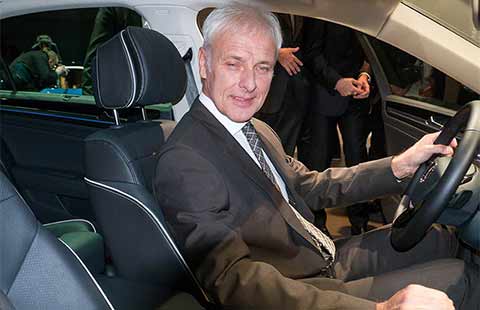China's rust belt seeks new growth engines
(Xinhua) Updated: 2016-03-03 11:02Emerging industries
While traditional industries have lost their shine, the rust belt is seeking new engines for growth. In addition to strategic plans by the central government, local governments have also been restructuring the economy by cultivating new industries, such as winter tourism, the space industry, and robotics.
In Heilongjiang, tourism revenue surged by 27.7 percent to 136 billion yuan ($20.77 billion), and it welcomed 130 million tourists last year, with winter tourism a core aspect.
"Snow used to mean disaster. But now, it means money," said Fan Zhaoyi, a logger-turned rural home-stay owner in Shuangfeng Forest Farm, dubbed "Snow Town of China." Fan made 400,000 yuan last year thanks to his 15 guest rooms and restaurant.
"It feels so much better than just watching television and playing mahjong to kill winter time," he said.
The satellite information industry is also emerging. In October, the "Jilin-1" satellites for commercial remote-sensing services were launched, including an optical remote-sensing satellite, two satellites for video imaging and another for imaging technique testing.
The operator of the satellite cluster, Chang Guang Satellite Technology Co, Ltd based in Jilin's capital Changchun, provides remote-sensing data and relevant products, which may be used for the monitoring, development, and surveying of resources as well as mapping and disaster prevention for domestic and overseas clients.
Cao Xibin, the deputy chief designer, said the project will not only promote development of machinery, optics and photoelectric sensing industries, but also help data applications, measure and control technology, and remote-sensing data processing, estimating huge commercial profits.
Compared with its European and American competitors, the company offers the same service at a lower price. It recently signed a service agreement with an Australian firm, although Cao did not disclose the contract value.
According to a 10-year plan, Jilin will establish itself in satellite remote-sensing and integrated application of space information by 2025. It is also building a space information industrial park, which is expected to bring in billions in revenue.
In Liaoning province, robot maker Siasun has sold more than 40 self-developed composite robots, a combination of mechanical arm and automatic guided vehicle, over the past three months. The robots are used in the semi-conductor and power grid industries.
Company engineer Song Xue is optimistic about the robot's market perspectives. "Our composite robots can effectively replace human beings, and it will take only one to two years for companies to recover their costs."
- China's service sector activity slows in February
- Chinese electric supercar debuts at Geneva Auto Show
- Property market in big cities gets frothy amid leveraged purchase
- American travel market eyes Chinese tourists
- Layoffs 'won't hurt' population boost
- China calls for an end to improper anti-dumping practice
- China set to win trust, confidence of other member countries: AIIB President
- Wind power puffs up company's future via State strategy
















